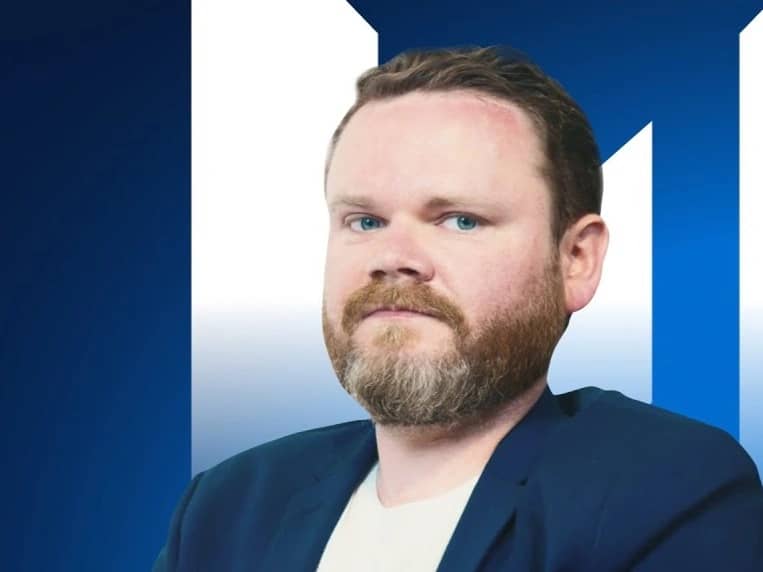Subscribe to wiki
Share wiki
Bookmark
Eric Turner
Eric Turner
Eric Turner is the Chief Executive Officer at Messari, where he has focused on blockchain research, strategy, and revenue initiatives while addressing transparency, regulation, and broader industry trends. [1]
Education
Turner attended the Isenberg School of Management at the University of Massachusetts Amherst, where he studied economics. He graduated in 2010, earning a Bachelor of Science degree in the field. [2]
Career
Turner began his professional career in the traditional finance sector. He held early roles at Morgan Stanley in 2009 and at Bloomberg New Energy Finance in 2010. Following his graduation, he joined Fidelity Investments, where he worked for approximately four years, from 2010 to 2014. He then transitioned to PGIM, the asset management arm of Prudential Financial, where he served as a Senior Analyst until 2015.
In 2016, Turner shifted his focus toward financial technology, joining S&P Global Market Intelligence as a Financial Technology Research Analyst. In this position, he concentrated on the emerging field of blockchain technology and its strategic implications for the financial industry. His work included providing analysis and expertise to policymakers, culminating in his delivery of expert testimony on the subject of financial technology before the U.S. Senate Banking Committee.
Turner joined Messari in 2018 as a founding team member and served as the company's first Director of Research. Over the subsequent years, he progressed through a series of senior leadership positions that reflected the company's growth. These roles included Vice President of Market Intelligence, Vice President of Strategy, and Chief Revenue Officer. After serving briefly as Interim CEO, Turner was officially appointed Chief Executive Officer of Messari in July 2024. [2] [3]
Interviews
PayFi Deep Dive
On Messari’s Fully Diluted podcast in February 2025, Turner interviewed Richard Liu (Huma Finance) and Lily Liu (Solana), who explored the evolving landscape of payment financing within the cryptocurrency industry, particularly through the lens of the PayFi report. They examined the implications of blockchain technology for cross-border payments, emphasizing the potential for decentralized financial systems to outperform traditional banking methods in speed and cost-effectiveness. Both Lily and Richard shared their backgrounds in the crypto space, discussing how their respective organizations aim to create an integrated financial infrastructure that facilitates seamless transactions and offers greater accessibility for users. The conversation highlighted the importance of stablecoins and ongoing technological advancements that could revolutionize the global payment system, as well as the challenges associated with educating the market about these innovations. Ultimately, the discussion underscored a shared vision for the future of financial transactions enabled by blockchain, where efficiency and democratization of financial services take center stage. [5]
PayFi Ecosystem
On the Unqualified Opinions podcast in January 2025, Turner interviewed Erbil Karaman, co-founder of Huma Finance, and Tomer Weller, Chief Product Officer at Stellar, in a discussion on the PayFi ecosystem. The conversation explored how PayFi, which has facilitated $2.8 billion in transactions, extends beyond payments to encompass a broader range of financial services by leveraging blockchain technology and stablecoins. Karaman and Weller emphasized that the model helps address inefficiencies in global transactions by enabling real-time settlement and reducing reliance on traditional banking intermediaries. They also noted the role of decentralized finance in providing liquidity and yield opportunities within the system. While challenges such as regulatory concerns and market understanding remain, both expressed optimism that PayFi could become part of mainstream finance by 2026, with growing involvement from major payment providers. [4]
Transparency in Crypto
In September 2024, Turner discussed Messari’s role in promoting transparency and investor education within the cryptocurrency industry on the Defiant Voices podcast. He reflected on how the company’s mission of providing clear information and context for investment decisions has remained consistent through leadership transitions. Turner also discussed the upcoming Mainnet conference, describing it as a space where developers can connect with end users, focusing on meaningful networking and new product announcements. He noted the growing competition among crypto conferences and the importance of making Mainnet stand out. Additionally, he shared his perspective on the evolving regulatory landscape. He reiterated Messari’s goal of being a reliable source of information for both experienced and new participants in the cryptocurrency market, where developers can connect with end-users. [6]
Fireside w/ Apollo
During a discussion at Mainnet in October 2024, Christine Moy of Apollo and Turner shared insights on the evolution of digital assets over the past eight years. Moy, who leads digital asset strategy at Apollo, elaborated on her experience in real-world asset tokenization and the significant transformations she witnessed, such as the shift from initial blockchain projects focused on Bitcoin and Ethereum to the emergence of decentralized finance (DeFi). She emphasized the importance of moving beyond infrastructure to focus on real business value in digital assets, highlighting the coexistence of permissioned and permissionless blockchains. Moy discussed the benefits of tokenization, including instant settlements and the potential for creating yielding assets through stablecoins. She also touched on the intersection of AI and blockchain, noting the possibility of generative AI to simplify smart contract development and improve accessibility for a broader range of developers. Overall, the discussion reflected on advancing digital assets and the role of AI in shaping their future. [7]
See something wrong?
